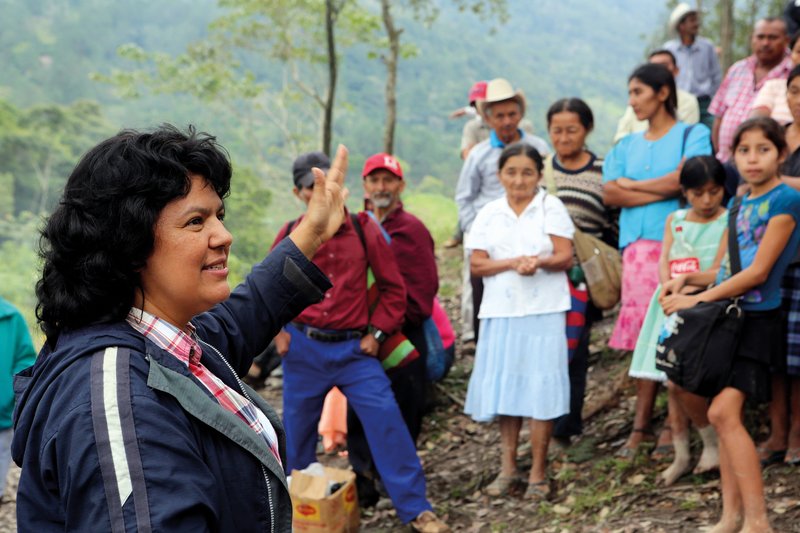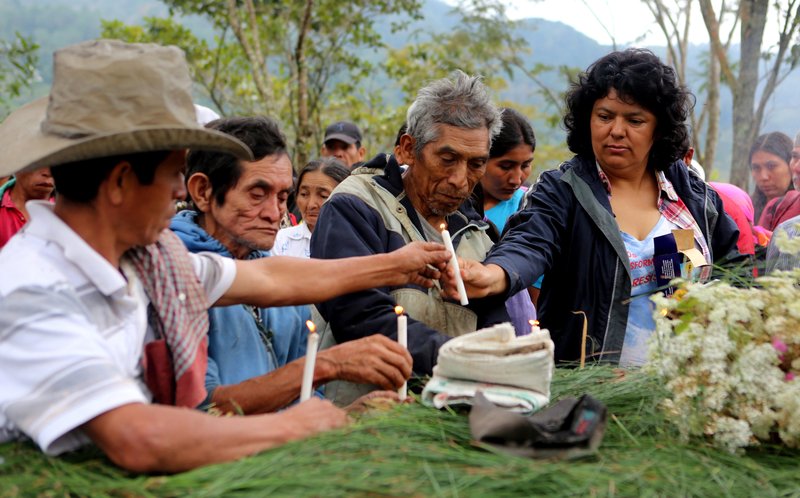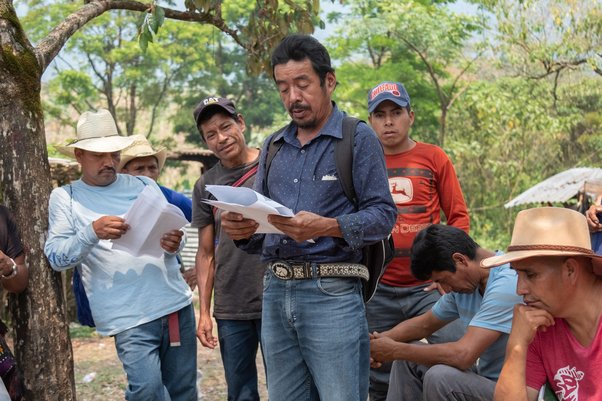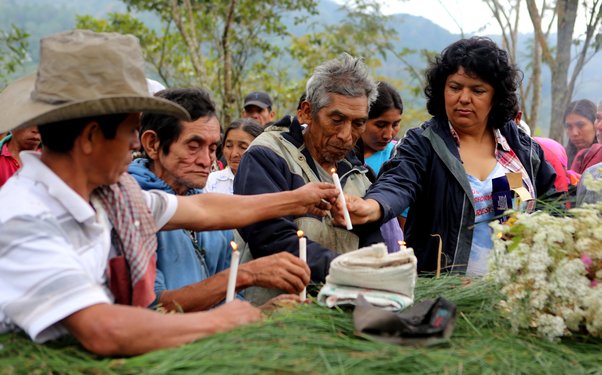Seven years ago today, the world lost Berta Cáceres - a Honduran environmental and Indigenous activist killed in her home in La Esperanza, just two days before her 45th birthday.

Goldman Environmental Prize
In the years leading up to her death, she worked tirelessly to protect the Gualcarque River – a vital water source for her community - from an internationally financed hydroelectric project, Agua Zarca. The alarm caused by the plan to build a dam on the river was high; not only is the river sacred to the Lenca community, but they also use the riverbanks to grow food and harvest medicinal plants.
Despite this, the Honduran government authorized the project without consulting them.
The river is like blood running through your veins. It’s unjust. Not only is it unjust; it’s a crime to attack a river that has life - that has spirits.
On the night of 2nd March 2016, after years of threats to her life linked to her opposition to the dam – and prolonged aggression towards the Lenca community - Berta was shot dead by hired hitmen who broke into her home.
Her murder didn’t go unnoticed, and sparked international outrage and renewed calls for justice for environmental defenders. A national and international movement led by Berta’s family resulted in the arrest of seven people involved in the killing, and in 2018, they were found guilty of her murder. However, unresolved questions remained, as the masterminds behind the lethal attack still walked free.
In a rare win for justice, in July 2021, a Honduran court found Roberto David Castillo - head of the hydroelectric company Desarrollos Energéticos (Desa) at the time of Berta’s death - guilty of co-conspiring in her murder. He was sentenced to 22 and a half years in prison a year later. But Berta’s family continued to fight in her memory, embarking on a long journey to stop impunity that reigns in Honduras and uncover the illicit associations linked to her murder.
This is an important advance, but the masterminds of the crime are still enjoying impunity thanks to their political and economic power. As victims of this crime, we, her family, members of COPINH (Civic Council of Popular and Indigenous Organisations of Honduras) and the Lenca people will continue demanding justice from the Honduran state.
Honduras, a reign of impunity and unregulated businesses
Seven years after Berta’s murder, Honduras persists as one of the deadliest countries in the world for defenders. According to Global Witness data, at least 48 defenders were murdered in the country between her death and the end of 2021. And the numbers keep on increasing with new episodes of deadly violence against Indigenous Peoples and community members in rural areas across the country.
The haunting figures are likely much higher than the reported data shows and persisting impunity only fuels threats and the ability of perpetrators to use violence to deter defenders from challenging corporate harms and wrongdoing.

Goldman Environmental Prize
Fatal attacks are just the tip of the iceberg. Defenders in Honduras are constantly intimidated, threatened, and criminalised by those who seek to silence them. The protection system has become an insufficient safeguard for defenders whose voices must be heard, and regulations on corporate actors barely consider human rights abuses.
Berta’s killing remains a painful reminder of the dangers that defenders face not just in Honduras, but worldwide. The Agua Zarca hydroelectric project was bankrolled by European financial institutions, including Dutch development bank FMO and the Finnish investor Finnfund in 2014, despite evidence and a direct plea from Berta not to do so. Last year, the EU proposed a law that could stop companies profiting from projects linked to the repression and murder of environmental defenders – but there is a danger that European countries will adopt a version of the law that would let investors off the hook.
Leaders across the globe must therefore support tighter laws to ensure that companies including financial institutions, carry out due diligence on human rights and environmental risks throughout their global value chains to make sure they are not backing projects like the Agua Zarca.
On the anniversary of her death, we urge Honduran leaders to hold those who ordered her murder accountable for their actions. It is also vital that they sign and ratify the Escazú Agreement to award adequate protection for the defenders of our natural world. We must continue to honour Berta’s memory - and the memories of all the defenders who have been lost - and demand justice for them and their communities. If we don’t, we will continue to suffer the pain of impunity for generations to come.
Read this page in


